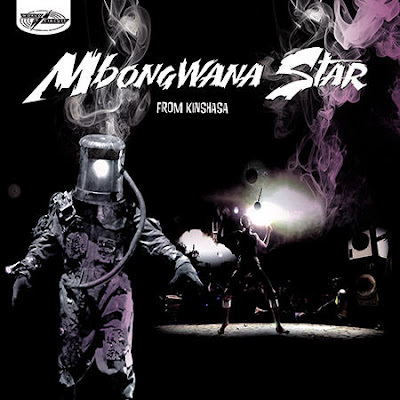Rarely has a musical release been so sweetly timed. Billed as
"Post-Troika Hellenic Trance Music", this latest collaboration by
Nick "Dubulah" Page (of Transglobal Underground, Natasha Atlas,
Dub Colossus and Syriana renown) called "Xaos" (the
Greek word for Chaos) is one that has been gestating for about ten
years.
Being half-Greek, Dubulah has long wanted to celebrate the musical
traditions of his mother's homeland and, to that end, has been
working on "Xaos" with Greek (but Australian-born) electronic
musician, artist and composer Ahetas. The project has taken shape in
fits and starts, as and when circumstances have allowed some of the
finest Greek players of traditional instruments and the two main
protagonists to be in the same place at the same time.
There are some common misconceptions around Greek musical culture. Most people outside of Greece would think of Bouzoukis, Nana Mouskouri, Zorba - and perhaps at a pinch Rebetiko. But Greek music has a rich five thousand year history. The instrumentation of "Xaos" reflects this perfectly with a Nay (Nose flute), Bul Bul (double flute), a Clarino (Greek clarinet), haunting Gaida (Greek bagpipes) and the exquisite Pontic Lyra. All of this is topped off with traditional Greek and modern-day Junk percussion, a Double Bass, Dubulah's guitars, Ahetas' old-school ARP keyboards and both of their digital wizardy.
As one might expect from a piece of work that's taken ten years to come to fruition, the nature of the music is that it is not in a hurry to go anywhere. The lapping of the Mediterranean and some extraordinary chanted scales start us on our way on "Pontos Blues", with cameos by some of the aforementioned traditional instruments. This feeds beautifully into "Poreia Processional" which takes us on a slow march through ancient streets, the hypnotic music taking us to another place by virtue of an ever-evolving theme with minute microtonal changes along the way.
By the time we get to the dramatic "Antigone stin plateia syntagma" ("Antigone in Constitution Square") one can start to feel the tension in the air of the inevitable, imminent popular unrest at the crazy, punitive counter-productive austerity measures insisted upon by the Troika. How refreshing that this masterpiece of a CD arrives at a time when Greek society is under so much pressure to re-evaluate its relationship with Europe.
There is a peace and a confident beauty in this music. By the last three somewhat more ambient tracks it is anything but Chaotic, rather it achieves a certain serenity. The seemingly effortless fusion of ancient and modern Balkan ideas, tones, melodies and instruments echoes none other than the work of Mercan Dede on the other side of the Bosphorus. Maybe it is time for Greece to turn its back on Europe and re-discover its true cultural strengths and identity elsewhere?






